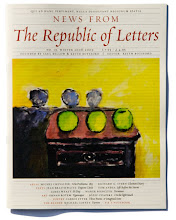I remember first coming across Paul Scott’s ‘Raj Quartet’ in New City or Sneden’s landing back in the days when Mike Wallace was still a ferocious reporter and Burgess Meredith a semi-reired nice-guy actor. Everyone spoke well of Scott and – as I was an avid reader on matters Indian, from Louis Bromfield to Somerset Maugham, from the miraculously funny G. S. Desani to Narayan and Chaudhuri, not excluding Tagore of E.F. Forster – I too read him, and with pleasure.
More recently I watched the 14 episodes of Granada’s ‘Jewel in the Crown’, an account of the love-hatred relationship between the British and the Indians. Intermixed with newsreel footage from Movietone, it is focused on that very difficult task, understanding. To know a country, you have to understand it; the failure to do so (‘Only connect’, wrote Morgan Forster) cost European nations their colonies throughout the world. The films, which contain some marvelous character-parts by Eric Porter and Peggy Ashcroft, were an anatomy of that misunderstanding: seductive in their portrayal of a three-hundred-year-old cohabitation, rueful in the depiction of the disintegration of the India that had been
But what weighed principally in my mind was the role of memory in retaining both love and insult. It is something ingrained in all of us. A wife leaves citing three instances of brutality or disregard; every detail she can go through, and does, in detail. Ask her about the years of marital hapiness and its very every-dayness she cannot really recall. Grudges are lodged ,in the safety-box of the mind; the good is amorphous in its benevolence..
In nothing is this as true as in the relationship between colonizer and colonized.
Lahti
2 years ago












